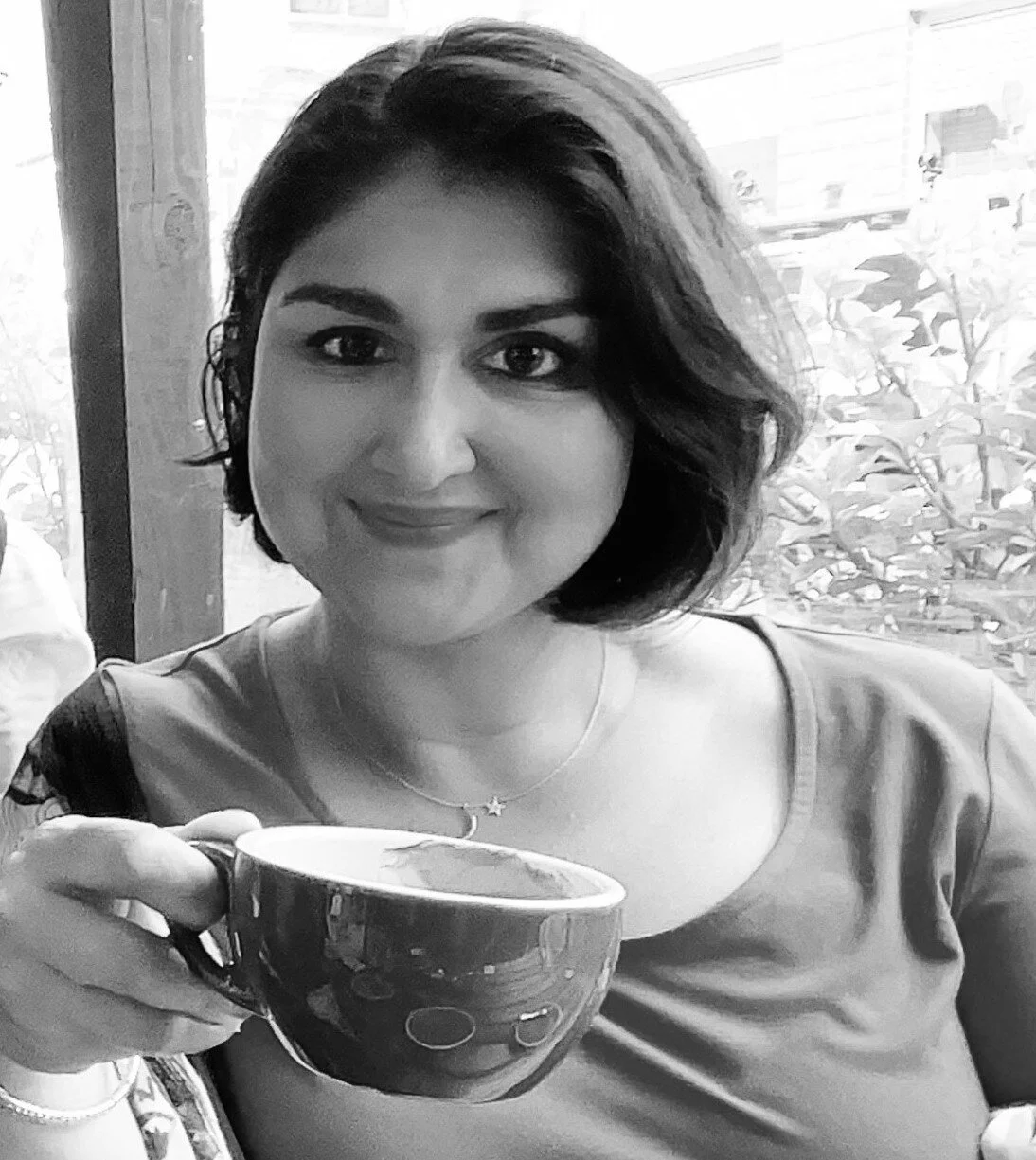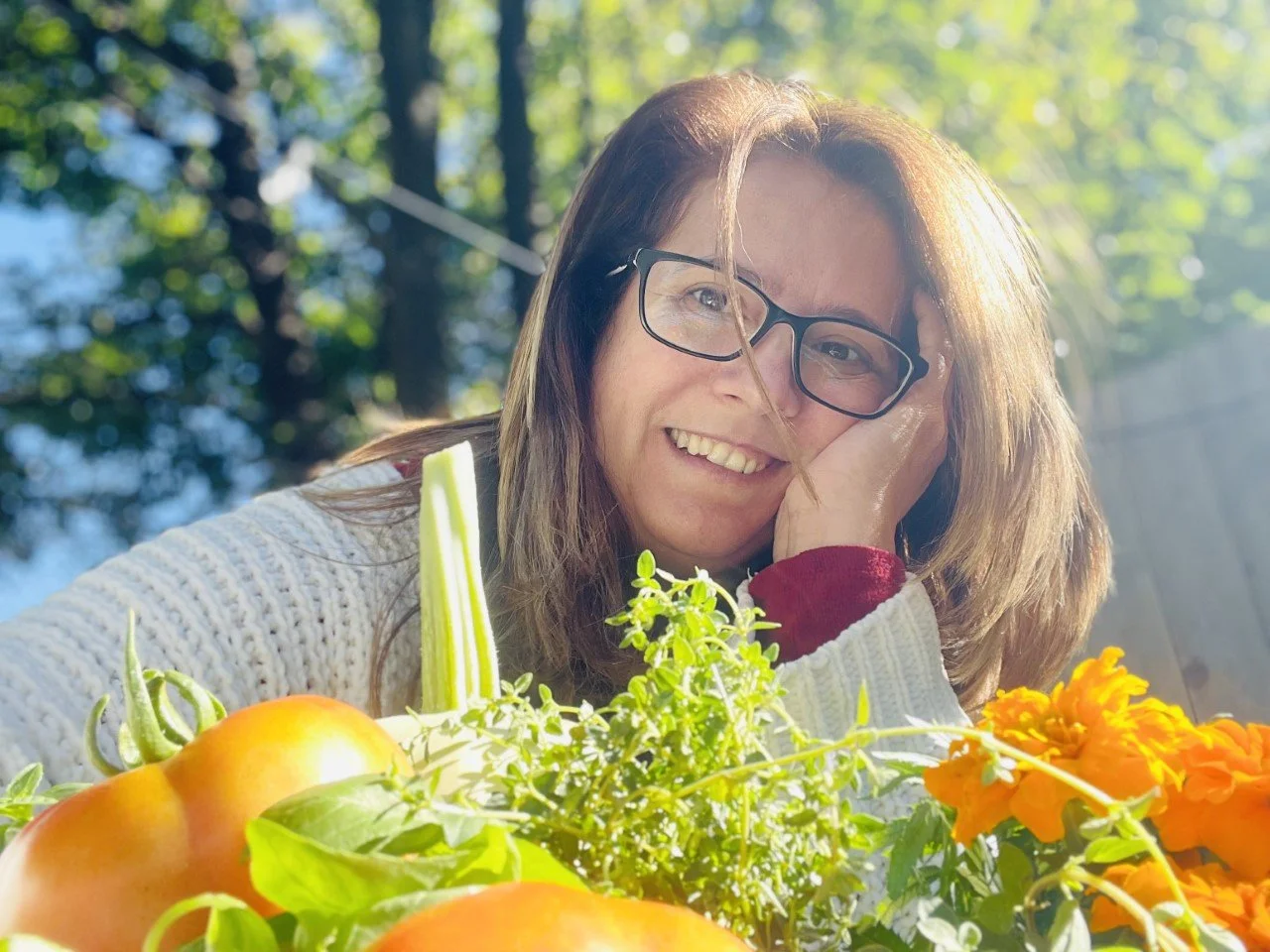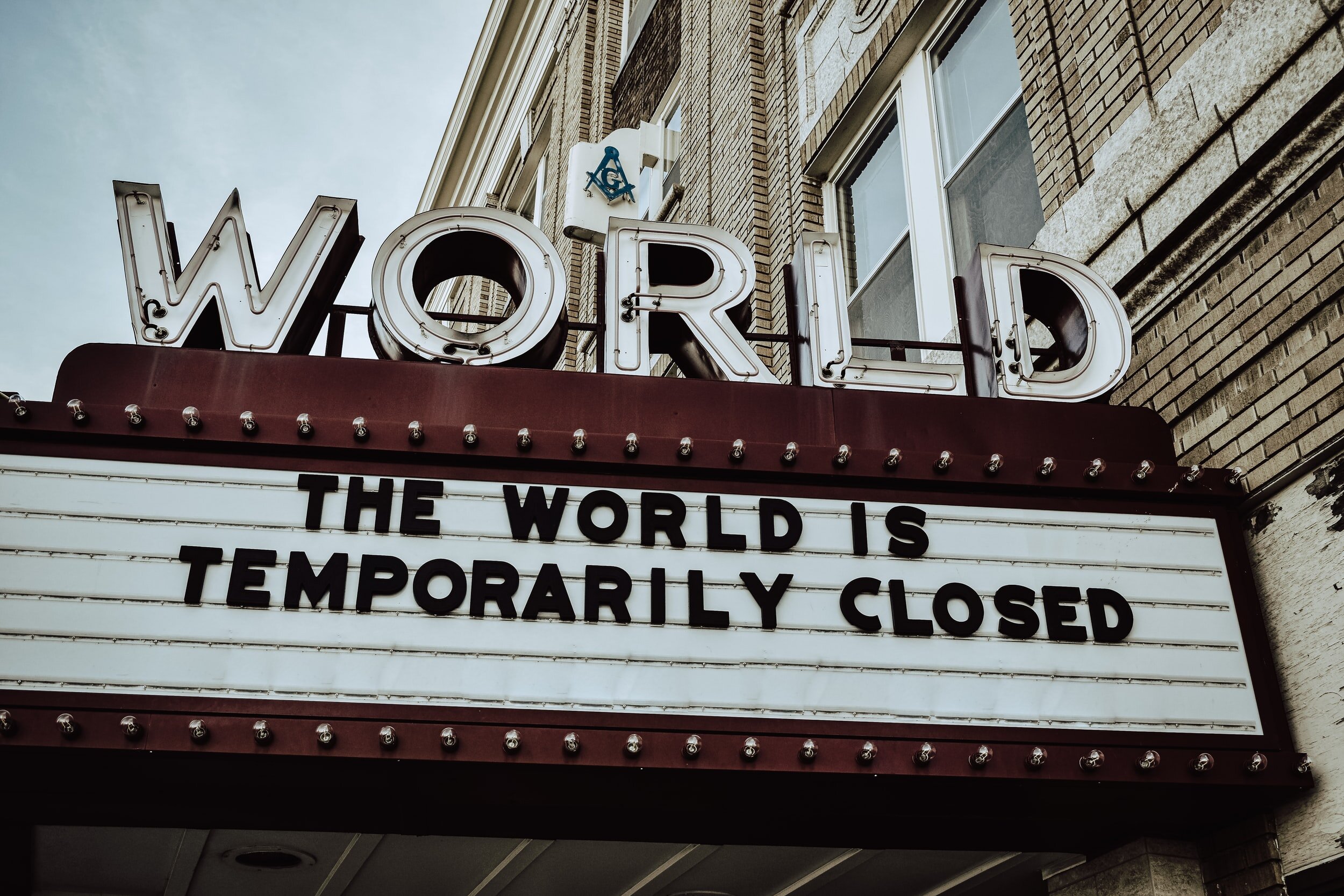The Tale Of A Broken Tomato Plant, A Doctor and I
The Tale Of A Broken Tomato Plant, A Doctor and I
This is the tale of how a broken tomato plant, a doctor, and my family began our healing journey!
Featuring: Dr. Neelofar Butt, a Resilient, Brilliant & Compassionate Pediatrician
Yes, this is the tale of a miracle that occurred in the form of a doctor, a tomato plant, and my family.
A tale of how our collective experiences crossed paths and of how we learned from each other and began a process of healing. Healing from anger, sadness, grief, and, most of all, from a painful feeling of not belonging - the feeling of being the "other."
This feeling has a name; it is called estrangement. The feeling like you’re not fully accepted into a group, a community, or society at large. The feeling of being different from the rest. It’s not that people treat you poorly, at least not most of the time. It’s that sometimes there is a disconnect between you and them.
The opposite of estrangement is acceptance. The feeling of being supported, being seen, and being loved for who you are. When you feel like you don’t belong, there is shame or feeling like you are being reduced to a label or a stereotype.
Many reasons can trigger this feeling: repeated childhood trauma, constant exposure to rejection, being bullied or made fun of, a lack of attention, physical or emotional abandonment.
The feeling of estrangement can also be triggered by a life-changing event of separation, such as divorce, the death of a loved one, immigration, migration. A child, for instance, can feel this way when switching schools. Or when facing hard circumstances, such as a gender identity crisis, body image challenges, or simply not accepting oneself.
In the case of divorce, family members or friends feel like they need to pick sides - alienating one of the spouses. Or when someone passes away. Or when we are in a situation where we feel different from others due to our skin color, religion, culture, language, belief system, etc.
Or when one loses something that gives them a sense of security and stability, like a job. Being fired might also trigger this feeling of estrangement.
As an immigrant, this estrangement manifests itself in many different ways. For example, one may feel like carrying the weight of representing one's race, gender, and culture on their shoulders. That fear haunted me for years. I remember having my first TV interview on Telemundo as we were launching the book. I was so nervous about mispronouncing a word or using my Spanglish that my heart was jumping out of my chest. I got sick to my stomach.
On other occasions, people will take certain liberties, such as taking it upon themselves to teach you how to pronounce a word without even considering asking if you are ok with that. After dealing with so many "well-intentioned" individuals, I became afraid to speak up for fear of not being understood. Then, I realized that I did not issue with pronunciation; I just have an exotic accent, that's all.
When mingling with other groups outside of your tribe, that's another story. The worry is being singled out. For many years, I battled with the idea of revealing too much about my personal life, especially anything that might be considered "negative” - because it would confirm stereotypes about being a Latina in the US.
If we all make an effort to be more intentional about these interactions, it could lead to more meaningful conversations. For instance, instead of having the urge to correct me, you could ask me how learning a new language had changed me. Then I'll tell you about the countless hours I've spent in accent reduction classes and the many hours and years I've spent in front of a mirror placing the tongue just in the right spot, sounding out the words.
Most likely, this will change the perception you have about me and other people like me. You see, it's not because of laziness that I have trouble pronouncing a word; it just does not click. For instance, I still can't pronounce the word focus for my sake without getting into trouble.
Would you please focus now? Yet, next time you see me, please do not try to teach me how to say it, though... It's ok. I learned to use the word concentrate instead. So, I’m good!
The circumstances that trigger the feeling of not belonging can be very different, yet the feeling is the same. When Dr. Butt came to me and began the healing process, this came up almost immediately.
You see, Dr. Butt is of Pakistani descent, a first-generation American. She had never experienced being the “other” during her childhood because she was born in the US. That is until 9/11.
She found herself recalling this experience:
She was walking in the empty streets of Manhattan by herself the day after 9/11 when she realized that a huge tank was coming toward her. Suddenly, she felt a pit in her stomach. She realized that she was afraid and vulnerable in her own country. And for the first time in her life, she felt like the "other." The same morning, instead of greeting the owner of the newspaper stand (who was also Pakistani) by saying "As-salam Alaikum" (Arabic for "Peace be unto you"), as they did for years, they both said, simply, "good morning." It was a way of keeping each other safe. They both knew, without having to say a word, that at that precise moment in history, they just became the "other."
This feeling is becoming even more prevalent after COVID. Many people who had never felt this way are now experiencing it - triggered by the many deaths, divorces, job loss, losing their social lives, missing out on things, political unrest, and the many other unbalances of post-COVID life. In many cases, the feeling leaves the person with deep anxiety, and engaging in meaningful relationships is hard.
In my case, the Washington riot and the subsequent events were the last blow; this crisis, combined with the COVID pandemic, triggered all these feelings to an extreme. When I came home that night, I found my son and husband in distress. They had spent many hours watching the news – and they began to ask the following question as they saw the events unfolding:
Had the mob who breached Capitol Hill been Black or brown, what would be the consequences?
For one, we all knew - the headlines would be so different. A massacre with hundreds dead and arrests would have occurred on the spot. Sadly, this is not hard to imagine; we just have to look at the evidence. There is a double standard, whether you agree with it or not. These are facts that we, black, brown, yellow, and minorities, have to live with it, creating a lot of fear.
My son became familiar with these facts on January 6th, 2021, and he is only 15 years old.
He looked straight into my eyes and asked me, "Why do they hate us so much?
I realized I was not the only one hurting. I sat down in silence and listened. Chris was in intense anguish. He was looking for an answer that I did not have. All I said was, simply, "Chris, whoever hates us, represents a very small percentage; they are just very loud."
It was a simple and incomplete explanation for a very complex and difficult situation.
I was devastated. Then I convinced myself that the best way to deal with this was running away. So, I wrote an amazing proposal to build a retreat center in the Dominican Republic (DR). It was the perfect project - an excuse to leave the country because I was just tired of feeling like the "other," and now my child was learning that feeling in the ugliest way.
So, I booked a flight, took my luggage, and left. It was March, and I went back looking for my promised land!
Leaving felt way too familiar... and not in a good way!
However, being there made me realize how much I had changed; even how I speak is different. That's when the real crisis hits me.
I had the sudden realization that even if I moved, it would not make a difference. I wanted to escape, yet there was no escaping. I became the "other" in my land. It was clear, running away wouldn't change anything. I needed to stay and face these things head-on.
I was heartbroken. I felt like I didn't belong here or there. I was "a person without land." I came to this conclusion: I didn't belong anywhere. I was not "Dominican" enough, nor was I "American" enough.
What Dr. Neelofar Butt had shared with me was exactly the same. I was able to relate to her in such a powerful way because this is how she felt after 9/11. She said that in Pakistan, she did not feel Pakistani "enough" – and here, she was "too brown," and that triggered this feeling of not being "American" enough.
After Neelofar shared this experience with me and I started talking to other women about this challenge, I realized how much suffering and pain so many of us are dealing with and how we are not able to express ourselves freely due to fears of judgment - creating division and misunderstanding between our communities.
We have many great people with great intentions, yet not enough understanding to create real change.
So, what do we do now?
In my case, I decided to plant a garden. More than growing plants, I needed to grow hope.
Jonás, my husband, was very concerned. He said things like: “You kill anything green.” And, “You won’t take care of these plants.” And, “You don’t know how.”
I know, I know. He was trying to protect me. Deep inside, he was concerned that I would end up feeling disappointed once more.
So, I thought, “Well, maybe it will be different this time.” I did some research and told myself, “If I can make this garden grow, maybe I can put my roots down again.” I literally needed to plant my hopes back into the land and see if the land would respond to my desperate plea for help.
During this time, I detached from many of my friends. Granted, during COVID, nobody could get together anyway. Still, even after the crisis, I felt like I needed to stay away. I didn't want to be around anyone; I was in so much pain.
I had watched my son struggle. My brother-in-law passed away due to COVID in April. Then, his wife, my sister, died in October. The injustices, inequalities, discrimination, police brutality - it all became even more apparent. A lot of the essential workers were minorities. It became obvious: the disparity was latent, yet it was there in a very real way. Our communities were dying, literally, by the thousands in many different ways. And then, to top it all off, the riot, the violence, the political unrest…
I had never felt so alone in my life, not even when my dad died when I was seven. The feeling of estrangement came back like a plague. I realized that I needed to ask for help. I am also very aware of the healing power of planting a garden. Gardening builds self-worth because as the seed develops into a full plant 🌱 it gives purpose and meaning to the one who planted the seed.
I reached out to Tom, one of my best friends - who happens to be a very kind white male - and asked him to give me a tomato. And he did. How symbolic. We planted the tomato: Tom, Amanda (my daughter), Chris, and me. It was an effort of love between people who look and think differently yet are similar at the core.
We watered the seeds. We took care of them. And once the baby plants came up, we planted them into a pot.
Every day they got bigger and stronger!
And as they got bigger and stronger, my feeling of estrangement and alienation began to heal. I attached all my hopes to those plants. I knew it was just a matter of time before all these emotionally charged feelings would wash away, and I’d find my place once more.
Then, I decided to plant the tomatoes into the ground to root themselves into the land. During the replanting process, one of my beloved tomato plants broke in half.
“OMG, what does it mean?”
I took a moment and saw a broken tomato plant, in all her beauty, tomatoes still hanging, in the ground, in total defeat. And it clicked... that's me. That's how I feel in this moment: broken inside.
Jonas saw my distress and told me it was only one; we could dispose of it. There are plenty more tomato plants. I told him,
"No. I'll help her heal."
He told me to concentrate my efforts elsewhere to have a better chance with the stronger ones.
Yes, I know. Except that is not the case. I must concentrate on the one suffering the most - she will be healed if she wants to. I must give her a chance.
So, I took a piece of tape and taped her in place. I planted and watered her and took the time to talk to her every day. At one point, she got yellow. So, I pruned her leaves. Then her trunk got white spots. So, I gave her some food.
She was in distress, so I researched tomatoes and learned that they loved having companion plants.
What a delight! Even plants need friends!
They loved Marigolds, which are so different from them. Yes, the tomato plants recognize the strength in diversity, too. One morning, it happened: I saw new growth coming out of my broken tomato plant. In a matter of days, she was no longer broken; she had become radiant. And I became radiant with her.
During this time is when Dr. Neelofar Butt became my client. At one point, we talked about this feeling of not belonging. We both agreed that this feeling of estrangement shaped us in so many ways. It made us stronger. It made us more compassionate. And, because of it, we can relate to all of those who feel the same way.
As a pediatrician, she works with many kids and teens who are going through changes in their lives in one way or another. For some of them, estrangement has become a very familiar feeling. Neelofar is a better doctor because she understands these feelings firsthand.
Let us clarify something: yes, the feeling, when channeled properly, will make you stronger and more compassionate. However, that does not justify those who purposely want to make us feel like the "other."
I’m not talking about the well-intentioned person who takes the liberty to correct me and teach me how to say focus. I am talking about those individuals who truly see us as a threat just because we might look or sound different from them.
To those, we say: “It’s enough; we’ll no longer tolerate it.”
These days, my broken tomato plant is still producing new tomatoes - feeding my family for months. I learned so much from her. I learned to be even more resilient and allow time to heal our hurts. I learned to accept help. Also, that it is ok to be different, and it's ok to share my differences because that's what makes us stronger.
Our dear Doctor Neelofar Butt continues her journey of self-growth and expansion, making a difference in so many people’s lives as she helps them heal. She taught us that our strength resides in our compassionate hearts and our ability to connect with each other. That is our superpower!
As for me, I definitely planted new roots in this magnificent, complex, and beautiful land we call home. And even when the feeling of being the “other” is triggered, I know, deep in my heart, that this is my home and the home of my children and my children’s children.
We are here to stay!
Dr. Neelofar Butt
Featuring
BIOGRAPHY
Dr. Butt received her bachelor of arts degree magna cum laude from Wellesley College and was awarded her medical degree from Icahn School of Medicine at Mount Sinai in New York, NY. She then earned a master of public health degree in maternal and child health from New York Medical College.
She completed her internship and residency training in pediatrics at Maria Fareri Children’s Hospital at Westchester Medical Center in Valhalla, NY. This was followed by a fellowship in Child Abuse Pediatrics at the Children’s Advocacy Center at the Westchester Institute for Human Development in Valhalla, NY.
Over the course of her career as a pediatrician, Dr. Butt has focused on trauma and it’s impact on health. One of her roles included spearheading a Pediatric Integrated Trauma Team, an innovative approach to integrated primary pediatric care and behavioral health.
She is currently practicing as a pediatrician at Westmed Medical Group in Yonkers, NY, where she continues to promote health and healing for her patients and the community.











